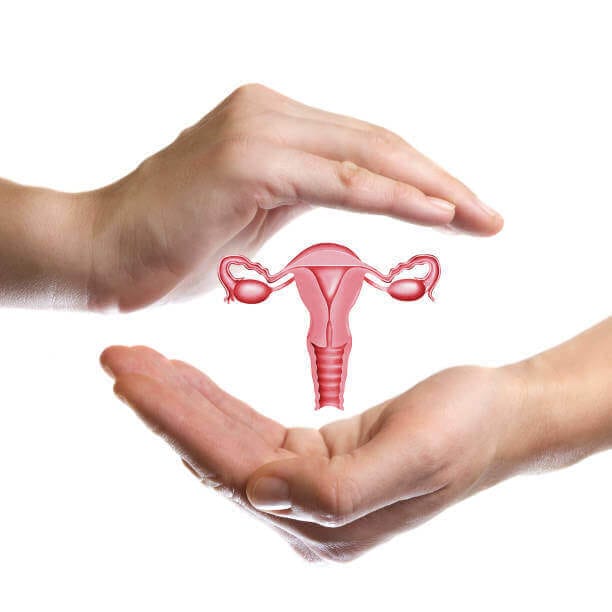Polycystic Ovary Syndrome (PCOS) is a hormonal disorder that impacts millions of women without their knowledge and usually interferes with their menstrual periods, weight, and fertility. Although it is one of the most prevalent endocrine disorders in women, a good number of them go undiagnosed because of poorly understood or vague symptoms. Knowing about Polycystic Ovary Syndrome is important to make early diagnosis, lead a healthier life, and have better fertility rates.

What Is PCOS?
Polycystic Ovary Syndrome is a condition whereby the ovaries of a woman produce an excessive level of androgens, which are male sex hormones that are normally found in low quantities. PCOS can also cause the development of several small cysts in the ovaries. These cysts are not dangerous but they may cause hormone imbalances. Not all women with Polycystic Ovary Syndrome however will possess ovarian cysts.
Early Signs and Symptoms
The diversity of the symptoms is one of the most confusing things about Polycystic Ovary Syndrome . Every female may experience various codes, yet the most shared symptoms include:
- An irregular or absent period: A characteristic of Polycystic Ovary Syndrome , which is due to the absence of ovulation.
- Extra hair growth: On the facade, trunk and backside.
- Slick skin and bad skin: Intractable rind complications, straight in old age.
- Eye problem: It is hard to see clearly and il also cause glacuma .
- Weight gain: It is hard to control in many cases.
- Hair loss on the scalp: The pattern is same as male baldness.
- Dark patches of skin: They are normally found on the neck or underarms.

All these symptoms can be experienced at puberty or in old age when the weight gain is considerable.
What is the Cause of Polycystic Ovary Syndrome?
Medics have not identified one cause of Polycystic Ovary Syndrome . Nevertheless, there are a number of contributing factors that are well known:
- Genetics: Polycystic Ovary Syndrome tend to run in children. You do not know that your mother or sister has it, and your risk can be advanced.
- Insulin Resistance: Increased insulin leads to an increase in the amount of androgens produced in the body which disrupt ovulation.
- Inexpensive Swelling: Polycystic Ovary Syndrome women tend to suffer poor-quality inflammation that awakens ovaries to food androgens.
- Obesity: The existence of heavy weight may aggravate insulin resistance and symptoms.

What is the Diagnosis of PCOS?
Polycystic Ovary Syndrome cannot be checked with a single test. Opinion is made out of a combination of:
- Curative history and carnal examination
- Blood tests to determine the level of hormones
- Ultrasound scan to aspect ovarian ganglions
Typically, a female is diagnosed when she has at least two of the following: asymmetrical periods, high androgen planes, or polycystic ovaries.
Treatment Opportunities: Not Preserving, but Dealing
Polycystic Ovary Syndromeis a long-term disorder, though its symptoms can be successfully controlled with the help of proper strategies. Depending on the symptoms and whether or not the woman wants to become pregnant, treatment is individualized.
Lifestyle Modifications
The first suggestion is usually weight loss. Equitable a trivial injury (5-10 percent of body weight) can assist to arrange epochs and mobilize insulin knowledge. It is good to have a low carbohydrate and high fiber diet. Frequent exercise, say walking or yoga, is a major factor too.

Medications
Surgeons perhaps will prescribe:
- Biological controller doses: To enhance periods and to reduce androgen plugs.
- Metformin: A drug used in the treatment of diabetes that enhances insulin resistance.
- Clomiphene: Assists in ovulation induction among the conception-seeking individuals.
- Anti-androgens: Decrease such symptoms as facial hair and acne.

PCOS & Emotional Health
Polycystic Ovary Syndrome may also interfere with the emotional health of a woman. Self-esteem can be reduced through hormonal changes and evident symptoms that lead to depression and anxiety. Mental health support and creation of a supportive lifestyle are as important as medical treatment.
PCOS and Abundance: Can you be found Pregnant?
Yes, absolutely. Although PCOS can make it harder to conceive, a lot of Polycystic Ovary Syndrome females think reasonably or through fruitfulness actions. The chances are significantly better with maintaining a healthy weight, monitoring ovulation, and adhering to the recommended therapies by the doctor.
Natural Means of Helping Hormone Balance
Natural remedies are used by many women along with the conventional ones. Some of the tested techniques are:
- Spearmint infusion: It is known to reduce androgen planes.
- Inositol increases: Maintains insulin education and ovulation.
- Cinnamon: May be supported by family sugar governor.
Hormonal imbalances can also be lowered by adequate sleep and stress reduction techniques, which may be done by deep breathing or journaling.

Final Thoughts
Polycystic Ovary Syndrome is more than a procreative issue it is a complex hormonal syndrome that has effects on overall health. With early diagnosis, healthy lifestyle changes and professional advice, the symptoms and long-term risks can be significantly minimized. In case you are doubtful that you require Polycystic Ovary Syndrome , do not linger in a gynecologist and an endocrinologist. Polycystic Ovary Syndrome is manageable with awareness, action and the appropriate support.
